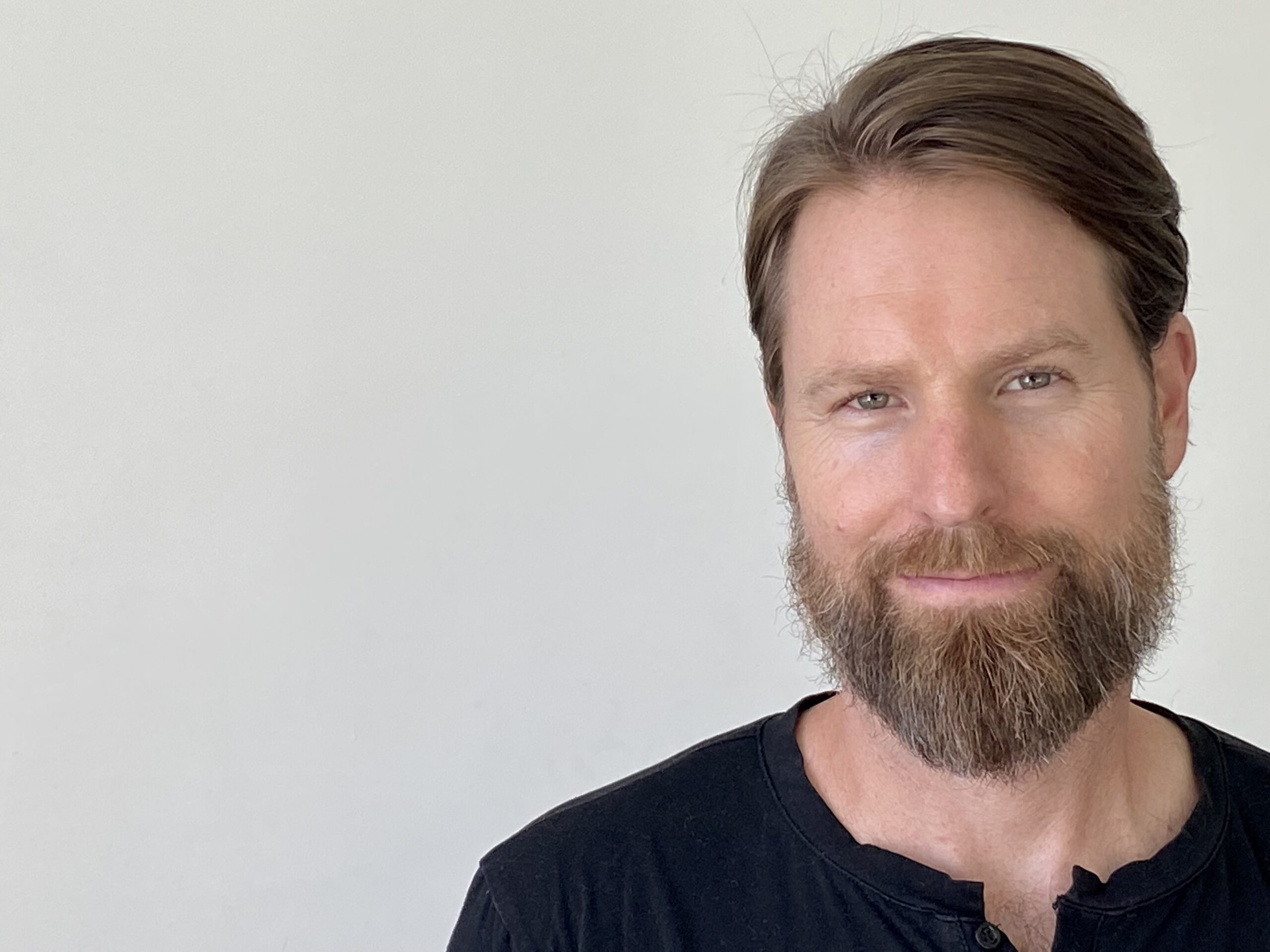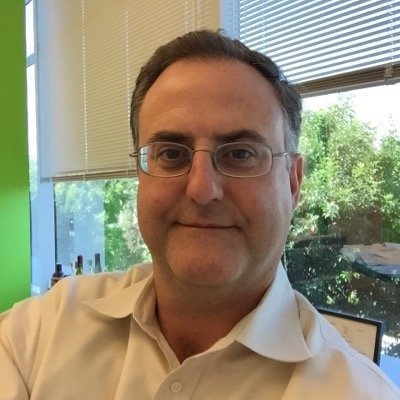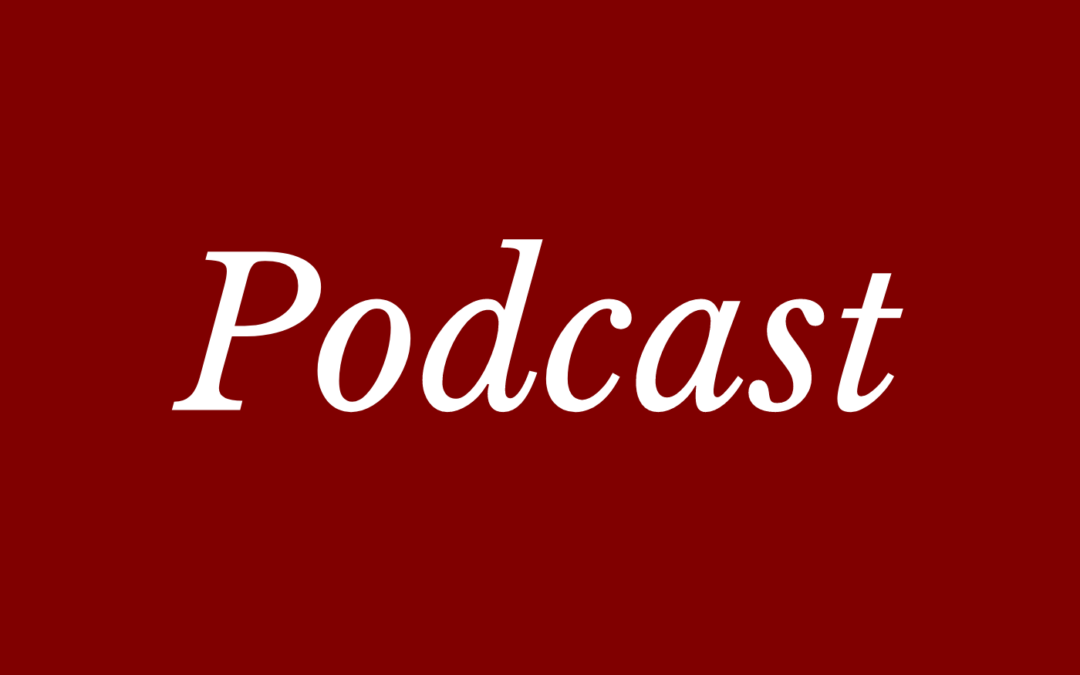Starting a 401(k) with Michael Armsby
Think starting a 401(k) for your company is too hard? Michael Armsby is working to change that and technology is helping to disrupt the industry and make saving for retirement easier and less expensive!
Listen to us On
About the Episode
LifeBlood: We talked about starting a 401(k), the retirement savings crisis, why too few Aerican are saving and what can be done about it with Michael Armsby, CFO of Human Interest, an org working to solve America’s retirement saving crisis.
Listen to learn one simple first step to getting on the path to financial success
For the Difference Making Tip, scan ahead to 16:42!
You can learn more about Michael at HumanInterest.com, Facebook, Twitter, Instagram and LinkedIn.
Thanks, as always for listening! If you got some value and enjoyed the show, please leave us a review wherever you listen and subscribe as well.
You can learn more about us at MoneyAlignmentAcademy.com, Twitter, LinkedIn, Instagram, Pinterest, YouTube and Facebook or you’d like to be a guest on the show, contact George at Contact@GeorgeGrombacher.com.

George Grombacher
Lifeblood Host

Michael Armsby
Guest
Episode Transcript
Come on
we like blood. This is George G. And the time is right. welcome today’s guest strong a powerful Michael RSB. Michael, I’m ready to do this.
Unknown Speaker 0:19
Yes. Ready? Let’s get after it.
george grombacher 0:21
Let’s let’s let’s go. Michael is the CFO of human interest organization working to solve America’s retirement savings crisis and shake up the retirement industry. excited to have you on. Michael, tell us a little about your personal life’s more about your work and why you do what you do.
Michael Armsby 0:39
Great. Yeah. So it’s great to be with you, George. So personal life I grew up in the Bay Area, San Francisco Bay Area, went to college twice east, but always came back to the bay area to live raised a family. Four kids got two boys out of college who are both gainfully employed gratulations thank you and two girls, two girls in high school. So yeah, plenty going on. My wife and I are both pretty active locally. She’s with some town and educational boards. And I’m actually board president for our local swimming tennis club. So we stayed we stay active. And professionally, I, I kind of started my career both finance and strategy consulting lanes, and it kind of got me geared towards operational finance, finance leadership, and kind of the CFO lane and so, so I’ve now been a CFO for the last 15 years. And human interest is actually a fifth CFO, CFO role that I’ve started. The prior four, the first two are in clean tech. And then the last two were FinTech companies. Notably, Yoda Lee was when I took public in 2014. And in fact, all four companies that I joined are now public in one way, shape, or form, whether they directly went public or were acquired. So it really got into, you know, this lane, where professionally I love being with fast growing technology enabled businesses most, most recently, FinTech and that’s what brought me to human interest, because it’s really just a powerful story, a great company, and really leverages a lot of experiences where I’ve been,
george grombacher 2:15
thanks. I appreciate that. Sometimes when I hear that a company is disruptive, I think, okay, maybe. But it strikes me that that the world of 401k is is just ready to actually be disrupted?
Unknown Speaker 2:30
Oh, yeah, absolutely. And there’s a ton of energy around this both with employers, you’ll see and there’s been a lot of activity in government, both state and federally around really solving. You know, the core problem that our company human interest was was founded to solve, which is this looming retirement crisis in our country. And if you look at it, there’s 10s of millions of Americans that are saving either nothing or next to nothing for retirement. And when you double click there, kind of the core reason is that fundamentally, their employers don’t offer a 401k plan. And so human interest was founded and has been organized around solving that with great technology, and creating just a really simple, easy to use, easy to implement plan that, you know, was originally designed for smaller. But really, it’s been been well received by businesses of all sizes. So it’s really, really crisis in our country heading to better save for retirement. Nice.
george grombacher 3:34
So 10s of millions of people I can remember at one point, I think I read a statistic that employees are half of the employees at now, not now, I’m gonna butcher that literally 10s of millions of employees are working at companies that just don’t offer 401k plans or retirement plans. Yeah, depending
Unknown Speaker 3:51
on how you define it at somewhere between 50 80 million, but these are largely with employees that aren’t saving enough for retirement, and they are employees of small businesses, whether it’s, you know, five person, employers all the way up to a couple 100. Many of them don’t have 401k solutions, because what’s been out there in the market is very complex, it’s hard to administer. It’s very costly. And, you know, small businesses don’t have you know, finance people or a finance team or really can deal with the kind of compliance complexity and we take that off their hands, we create a really easy to use, easy to launch and run 401k that can help them bring that benefit to their employees because you know, financial wellness, and being competitive as an employer means you need to have a good 401k these days.
george grombacher 4:41
Why is it that prior to human interest and other companies similar to yours? That that a 401k is is so hard to set up, administer, govern?
Unknown Speaker 4:55
Yeah, well, well, in part because you know, the solutions The plans that are out there for many years are really designed for larger businesses. And so part I was getting at is you really need to have a finance person or a team that can handle syncing and reconciling with payroll, and addressing compliance requirements and reporting needs and tax issues. So we try to take all of that off your hands, we partner with many payroll providers to make that sync automatic. And we take the complexity of compliance and reporting largely off of our clients hands. But that’s what has been an impediment in addition to the cost, because I think existing solutions are just designed for bigger companies or higher costs, both to the employer, and to the participants, we try to make that very simple and much more cost effective at the same time.
george grombacher 5:50
So they’re, they’re extremely complex. They’re really expensive. They’re hard to understand. It’s a wonder. Yeah. And and really difficult to administer. So certainly not a surprise that Yeah, and so this other.
Unknown Speaker 6:04
Yeah. So if you’re an employer with, you know, typical employer might have 4050 employees, you don’t have a finance team, you’ve probably outsourced, you know, finance, a record keeping, how can you handle that type of plan? It’s just not work. There weren’t good solutions until that’s what we, we came along to try to solve.
george grombacher 6:20
Got it. So y’all looked at the problem? He said, Okay, I think we understand what we’re trying to accomplish here allow for people to be saving money for their long term retirement plan. How can we bring technology to the table, tell me about how it is that you were able to sort of bridge the gap?
Unknown Speaker 6:38
Well, I think we’ve tried to make the solution as simple and straightforward for both employers and the employees or participants as possible to kind of take a lot of the mystery and some of those blockers out of participating in a 401k. So So I think simplicity has been one key design principle. And what we’ve seen is we’re able to use our technology to really drive, you know what a 401k is intending to do, which is great participation rates and great contribution rates. So we we see participation rates up into the 70% for employers that launch our plan, whereas typical industry, participation rates are much lower than that below 50. And we see great contribution rates, including many cases and employer match that we we encourage because that also drives participation. But we see great results in bringing technology and simplicity and elegance to get people to join auto enroll, participate and be contributing to their own retirement.
george grombacher 7:45
Fascinating that there’s so many different things to be sort of thinking about and focused on that we touched on plan design, if it’s if they’re going to offer a match talked about understanding how much people need to be saving. So the contribution rates, and should I even get involved in planning in the first place to the participation? I imagine a lot of it is just split testing or trying different things. But right language and jargon.
Unknown Speaker 8:15
Yeah, no, exactly. And so there’s a lot to understand and learn. And so one thing we’ve done, and I encourage anyone who wants to learn more, visit our website, we have a whole learning hub. And that whole Learning Center has has information both for employers, and employees, and you can subscribe to our newsletter. But it’s a good way to learn a lot about what are the requirements? What can I do, you know, what do we offer? So I would just encourage people to learn more, because it is a a nuanced topic that it’s important for employers to get smart about as they are launching the plan.
george grombacher 8:48
Yeah. So as you are as the team is out talking to potential companies who want to implement a 401k plan. What is that how everybody’s going to be different. Some people need to know everything about that they’re interested in taking the watch apart. Other people are like, just tell me what time it is. So how do you how do you make it accessible and sort of meet the employers where they are?
Unknown Speaker 9:16
Well, I think we have to do just that you meet the employers where they are, and many of them want, you know, some pretty simple tell me how it’s gonna work. Tell me that it can be taken care of tell me that we could administer this clearly. But But essentially, I’ll be providing an important benefit to my employees, I’ll be providing a benefit that makes me attractive competitively. And I think meeting where they are on those terms is really what’s fundamental to our dialogue. One thing I’d say is, you know, we typically I think the majority of our new employers we bring onto our platform if they’ve had no prior solution. That kind of speaks to the problem that we’re addressing because they had No prior 401k. And so they’re implementing one for the first time. So there, they want to learn a lot about how it works and what the requirements are. But now we’re also seeing more of what we call conversion plans where a company seeing our platform as attractive compared to where they are, and they’re, they’re moving over to human interest. So we’ve seen both. And the other theme, I’d say, that’s just kind of where they are, is kind of now the environment we’re seeing in government that there are I think it’s now 24 states have some type of mandate around employers offering retirement programs. This has just come out over the last year or two. And in fact, there’s now a federal legislation and Ways and Means Committee in Congress, looking at a federal mandate that employers and this is down to employers of five or more employees that they look to offer retirement plans. So there’s really good momentum and that, you know, these mandates are there, because I think government is recognizing the same kind of looming retirement crisis and trying to encourage employers to offer these types of plans and we’re there to help fill that gap.
george grombacher 11:12
Nice. I appreciate that. So simplicity, the ability to, for lack of a better term, perhaps nimble that human interest is, I don’t want to call you small. I don’t want to call you scrappy, but you are smaller and probably scrappier than fidelity.
Unknown Speaker 11:30
Oh, sure. There’s no big giants in this space. But we have ambitions to be you know, to grow and be a leader in this emerging part of the market.
george grombacher 11:39
Yeah, certainly. And with that growth comes comes change you talked about with with the elderly, and then with, with Personal Capital, taking these companies public or selling them. How do you think about the private company versus public company? From a simplicity standpoint? Does that totally change things?
Unknown Speaker 12:03
Um, no, I don’t think it changes things. I think it just, there’s, there’s lots of great options in the market today, for really good companies to grow. And we’ve been, you know, fortunate, we’ve we’ve had some successful financings, we brought on some great growth capital partners in our recent financing. And so there is great access to capital for good companies that have great growth stories like ours, to continue to raise capital and grow. And you could do that publicly or privately, you know, we see ourselves as really having a great foundation to be a public company, you know, a great large market, that we’re uniquely positioned to solve with a great technology solution. One where we’re growing, we’ve been hearing growth in both our employers and our, our participant, economics. And so we see that that is clearly an option and something we’re looking towards, but But I think, you know, it doesn’t change the complexity of how we go to market, I think, fundamentally, we just focus on our execution and creating the best product for, for our employers.
george grombacher 13:06
Yeah, that that certainly does make a lot of sense. And so long as you are staying true to your mission and, and your values of serving people and bringing the solution to as many companies as many participants as possible.
Unknown Speaker 13:20
Yeah, and that’s the whole game. So I would encourage people, if they’re thinking about this, you know, one of the you’re an employer yourself, you know, we’re happy to, to help work with you go through, you know, some education and, and consider the right solution for your company, if you’re an employee of a business that doesn’t have a 401k, you know, definitely talk to us or your benefits advisor, whoever it may be, that helps manage, you know, employee wellness for your company, you know, definitely point them ROA and we and we can help you out,
george grombacher 13:50
I appreciate that. So, the desire of, of human interest to, to, to, to meet your mission statement, and to be profitable, and to grow and all these things, while you are making decisions about pricing. So you want to make it so probably you don’t want to be the cheapest out there. But you also don’t want to be perceived as really expensive. And and so how, how do you think about that?
Unknown Speaker 14:20
I think you’re right, we want to make it again, both simple. And, and also written straightforward, and also very effective economically for our employers and the participants. And so, one simple is important because you know, this industry has many hidden fees, and many economics that are not as clear to both participants and employee players when they’re launching a 401k. So we tried to make that very simple. And we have a very straightforward, kind of one fee simple approach for both employers and participants. So that transparency is very important to us. We will I think we’re very clear that When you look at the all in cost of our solution versus the incumbents out there in the 401k space, it’s at least you know, a half to a third, as expensive as what an all in costs for other 401k is can be as that’s leveraging technology and our ability to scale a more efficient business that’s really designed for these types of maybe smaller businesses, but growing businesses deployments,
george grombacher 15:26
you hit on something that’s really near and dear to my heart is that there are hidden fees. I remember when I started in the financial services industry, it was clear as mud, how much stuff cost, particularly how much a 401k cost. And so it’s so wonderful that that has become a little bit more transparent. But even more wonderful that companies like human interest are coming to the market and saying, here’s how much it costs. Here’s how much that company is paying, here’s how much you as the employee are pain or getting charged like
Unknown Speaker 15:56
it because in the end of it’s not there, like there may be compliance requirements, reporting requirements, oh, that’s an upcharge. That’s an added fee to the employer, or participants like they don’t know what is the actual load of the funds that are being promoted are required for you to take into your investment account. That’s that’s part of the actual total economics to the participant, we make that all simple and very straightforward and effective.
george grombacher 16:20
Yeah. Another thing that has been sort of on the tip of everybody’s tongue that’s in the 401k industry, it seems over the past four or five years, and probably just financial stuff, in general, is his fiduciary and fiduciary responsibility. And there’s certainly a lot of that going on with 401k. And for good reason. But how do y’all think about fiduciary?
Unknown Speaker 16:43
Well, I think it’s fundamental to I think our mission and vision is that not only do you want to be transparent and be effective, but you want to do what is in the clients best interest. And we are, we’re an asset advisor, we’re, you know, managing these participants assets, we have to do what is right, and in the interests of our participants. And I think that’s fundamental to, you know, how a business should be run, as well as how the industry should be organized. So, so I think, you know, we want to help employers also act as fiduciaries and find good wellness and retirement programs that are in their employees, best interest as employers. So I think it’s very fundamental to how we view the world.
george grombacher 17:31
Nice. I like it. Well, Michael, people are ready for that difference making tip, what do you have for them?
Unknown Speaker 17:37
Well, it’s, it’s not going to be a surprise, because it’s about 401 K’s I would say, you know, the difference making tip, and it really is, and this is what I told my own sons who are now both employed and working. I said, you know, if there’s nothing else you do, please participate in and max out your 401k. Because your future self will thank you for that. And starting early, or if you haven’t started, you know, jumpstarted, because there’s ways to do that. And if your employer doesn’t have one, you know, haven’t talked to us and we can help you out.
george grombacher 18:10
I think that that is great stuff that definitely gets come up. Come on. Well said right there. I’ve been telling my five year old at all morning said whatever you do. If you started right now, you’d only have to save a little bit.
Unknown Speaker 18:26
Yeah, well, my son’s when I told him it was oh, what do you mean? So let me explain it to you. And then I think they kind of got it, but they are they’re maxing out their 401k. So
george grombacher 18:35
Oh, awesome. I think that’s great news. Well, Michael, thank thank you so much for coming on. Where can people learn more about you? And where can they engage with human interest?
Unknown Speaker 18:43
Just find us you know, online, we have a website as well as on all the social channels just human interest, either, you know, Facebook, Instagram, LinkedIn.
george grombacher 18:55
Excellent. Well, if you enjoyed this as much as I did show, Michael, your appreciation and share today’s show with a friend who also appreciates good ideas, go to human interest comm check out all the great resources they have. Take advantage of the learning library that Michael mentioned, and start the conversation about bringing a 401k to your company, for your people, and also on social media list all those notes of the show. Thanks again, Michael. All right. Thanks, George. All right. And until next time, keep fighting the good fight. We’re all in this together.
Transcribed by https://otter.ai
More Episodes
Beyond the Bank Balance: Cultivating a Soulful Relationship with Money
You don’t need to be a Wall Street shark or a personal finance guru to develop a healthy relationship with money. In fact, most of us start with little more than a jumble of beliefs and habits passed down from our families. But if you’ve ever found yourself stressed...
How Using AI Can Help You Gain Clarity Into Your Financial Future
In today's fast-paced, data-driven world, achieving financial clarity can feel like an overwhelming task. With numerous financial decisions to make—from budgeting and investing to retirement planning and debt management—it's easy to feel lost in the complexity of it...
How AI Can Help Improve Your Personal Finances
1. Smarter Budgeting and Expense Tracking AI-powered tools like Mint, You Need a Budget (YNAB), and PocketGuard can automatically categorize your expenses, track your spending in real time, and even alert you when you’re about to exceed your budget. These tools...
Trust and Confidentiality When Using AI as Your Financial Coach: Safeguarding Your Sensitive Data
In the digital age, artificial intelligence (AI) has revolutionized many aspects of our lives, including personal finance. AI-powered financial tools have become a go-to resource for budgeting, investing, debt management, and even retirement planning. But as more...
How AI Can Be Your Personal Financial Coach: Unlocking the Future of Financial Success
In today’s fast-paced world, managing your finances can feel overwhelming. With so many options for saving, investing, and budgeting, it can be hard to know where to start or how to stay on track. Fortunately, advances in technology—specifically Artificial...
How Technology and AI Are Benefiting Investors and Consumers in Securing Their Personal Financial Futures
In recent years, the rise of technology and Artificial Intelligence (AI) has profoundly transformed the financial landscape. These advancements have empowered investors and consumers to make more informed, efficient, and personalized decisions about their financial...
10 Things New Parents Should Be Thinking About Regarding Their Personal Finances
Becoming a parent is one of the most joyful and transformative experiences in life. However, it also brings new financial responsibilities and challenges. If you’re a new parent or expecting, it’s crucial to plan ahead to ensure your family’s financial security. Here...
10 Things Newlyweds Should Be Thinking About Regarding Their Personal Finances
Marriage marks a new chapter filled with excitement and partnership. While love may be the foundation, financial harmony is key to building a stable and happy life together. To set yourselves up for success, here are 10 essential financial topics that every newlywed...
Financial Tips for New Parents: Building Stability and Security for Your Growing Family
Becoming a parent is one of life’s most rewarding experiences, but it also brings significant financial challenges. From diapers to daycare, the costs add up quickly. Whether you’re a first-time parent or adding to your family, managing finances wisely is crucial for...
Join the show.
Interested in being on the show? Tell me a little bit more about you and what you’d like to talk about!














